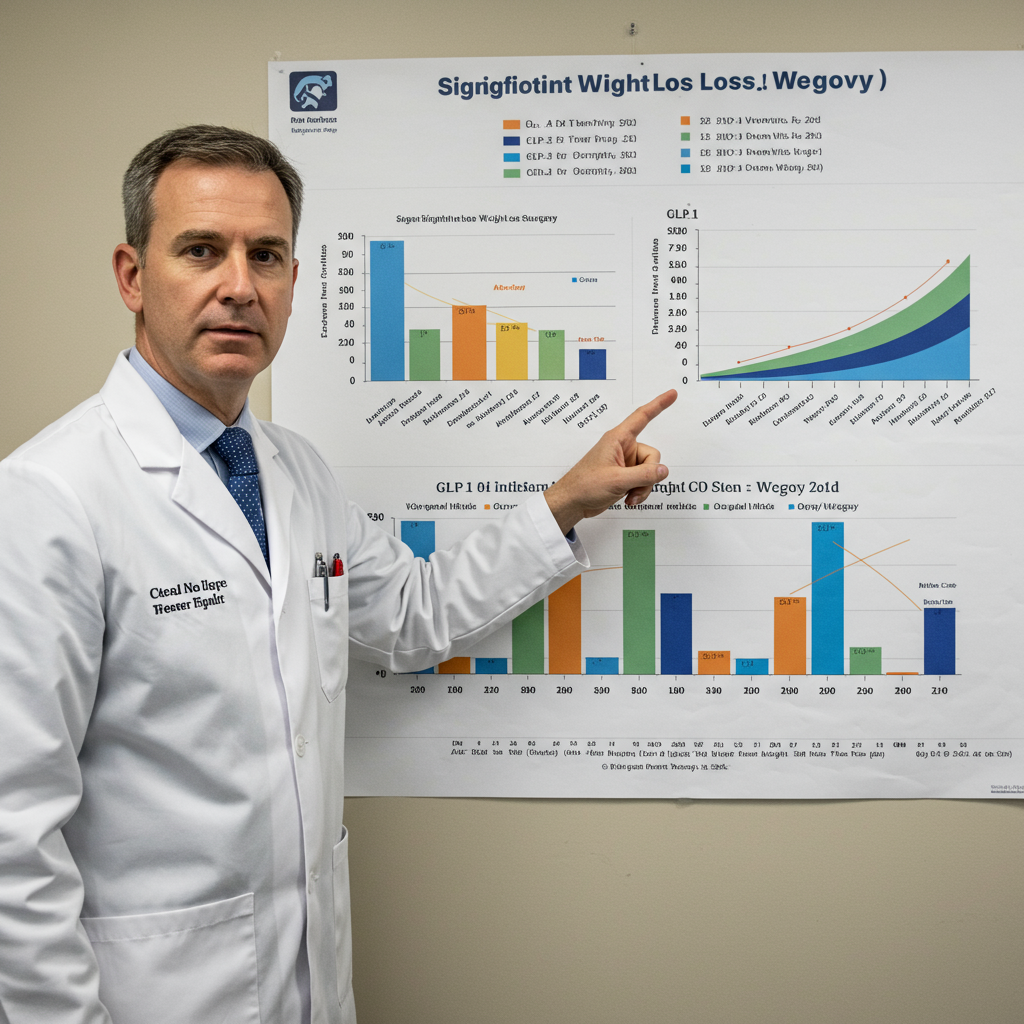For individuals seeking significant weight loss, two of the most effective current options are bariatric surgery and newer GLP-1 medications like Ozempic and Wegovy. While clinical trials for GLP-1 drugs have shown impressive results, new real-world data offers a crucial perspective, suggesting that surgery currently leads the way in terms of the magnitude of weight loss achieved by patients.
A recent study conducted by researchers at New York University (NYU) analyzed the outcomes of over 50,000 patients treated for obesity with either bariatric surgery or GLP-1 therapy over a two-year period. The findings, presented at the American Society for Metabolic and Bariatric Surgery (ASMBS) annual meeting, revealed a stark difference: patients who underwent bariatric surgery lost significantly more weight than those treated with GLP-1 drugs.
Bariatric Surgery vs. GLP-1s: The Numbers
According to the NYU study, patients receiving bariatric surgery—specifically sleeve gastrectomy or gastric bypass—lost an average of 58 pounds after two years, representing approximately 24% of their initial body weight. In sharp contrast, patients prescribed GLP-1 medications like semaglutide (Ozempic/Wegovy) or tirzepatide lost an average of only 12 pounds, or about 4.7% of their starting weight. This represents a nearly fivefold difference in average weight loss favoring surgery in this real-world analysis.
Even when researchers looked at patients who stayed on GLP-1 medications for a full year, the average weight loss only increased to about 7%. Those taking tirzepatide, often considered the most potent GLP-1 available, saw slightly better results at 8% to 9% average weight loss. However, these figures still fell considerably short of the weight loss achieved with surgery and the higher percentages (typically 10-20%) reported in controlled GLP-1 clinical trials.
Understanding the Real-World Disparity
Why the difference between clinical trial results and real-world outcomes for GLP-1 drugs? Several factors likely contribute:
Adherence Issues: High discontinuation rates are a major challenge. The study’s lead researcher, Dr. Karan Chhabra, a bariatric surgeon at NYU, noted that as many as 70% of GLP-1 patients stop using the medication within the first year. Reasons often include managing side effects like nausea, vomiting, and diarrhea, or the significant cost of the drugs, which are frequently not covered by insurance and can exceed $1,000 per month.
Dosing: Many patients in real-world settings may not reach the maximum effective dose of their medication, unlike participants in structured clinical trials.
Lack of Support: Patients in clinical trials often receive intensive support and follow-up from healthcare providers, which may be less common in typical real-world care or through remote telemedicine models.
Dr. Chhabra emphasizes the importance of looking at real-world data to temper expectations based solely on initial trial results.
Beyond the Scale: Other Effects of GLP-1s
While the NYU study highlights the superior weight loss magnitude of surgery, GLP-1 medications appear to have other notable effects that impact health and behavior:
Changes in Eating Habits: Research suggests GLP-1 users tend to consume significantly fewer calories daily (estimated 700-1000 fewer) and shift their dietary patterns. They often reduce intake of processed foods, sugary drinks, refined grains, and red meat, while increasing consumption of fruits, vegetables, and water. Interestingly, while consumption changes, the desire for less healthy foods might not completely disappear, pointing to complex effects on appetite and pleasure response.
Reduced Alcohol Consumption: Emerging studies indicate that GLP-1s can significantly lower alcohol intake, particularly in heavy drinkers. Some findings show reductions comparable to established treatments for alcohol use disorder, suggesting a potential dual benefit for individuals managing both obesity and problematic drinking.
Muscle Preservation Efforts: One challenge with significant weight loss, including with GLP-1s, is the loss of lean body mass (muscle) along with fat. While GLP-1s can lead to a notable proportion of weight lost being muscle, research is actively exploring ways to mitigate this. Scientists are developing and testing drug combinations that pair GLP-1s with other agents designed to help preserve muscle mass during weight reduction, potentially improving the “quality” of weight loss.
Surgery: Still a Powerful Tool
Bariatric procedures like sleeve gastrectomy and gastric bypass have long been considered the most effective treatment for severe obesity, often leading to long-term improvements in related health conditions like type 2 diabetes and high blood pressure. The NYU study reinforces that, based on current real-world usage, surgery continues to deliver the most substantial weight reduction on average.
Choosing the Right Path
The findings from the NYU study don’t mean GLP-1s are ineffective or that surgery is right for everyone. Instead, they underscore the importance of understanding the realistic outcomes and considerations for each treatment option.
For many, the decision between surgery and medication involves personal preferences, cost, insurance coverage, tolerance for side effects, existing health conditions, and willingness to undergo an invasive procedure versus commit to lifelong medication.
Dr. Chhabra advises that patients considering GLP-1s should have realistic expectations about the potential amount of weight loss compared to surgery and understand that it is often a lifelong treatment, as there are currently no established protocols for maintaining weight loss if the medication is stopped.
While GLP-1 drugs represent a major advancement in obesity medicine and offer benefits beyond weight loss magnitude, real-world data confirms that bariatric surgery currently remains the most powerful intervention for achieving substantial, sustained weight reduction. Future research aims to better understand the real-world factors limiting GLP-1 effectiveness and to develop next-generation treatments with improved outcomes and fewer side effects.



